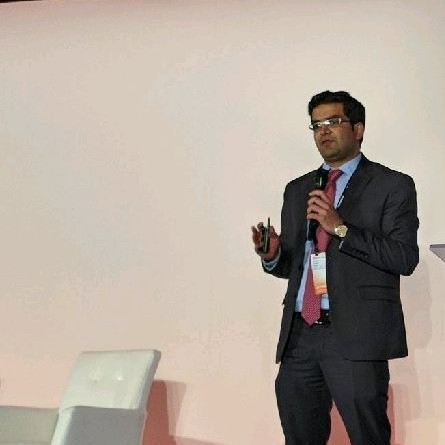For fintech lenders, RBI's cautious stance translates into a careful approach to uncollateralized short-term lending.


Ankit Ratan, Co-founder & CEO, Signzy
FinTech BizNews Service
Mumbai, February 7, 2025: In order to provide a greater safety for online international transactions using cards issued in India, the RBI has today proposed to enable Additional Factor of Authentication (AFA) for international card not present (online) transactions as well. This will provide an additional layer of security in cases where the overseas merchant is enabled for AFA, as per the statement of Sanjay Malhotra, Governor, Reserve Bank of India, while announcing the decisions of the MPC on Friday, which is welcome by the industry leaders of Fintech, digital lenders and payment companies.
Jatinder Handoo, CEO, Digital Lenders Association of India (DLAI) explains: "RBI Governor’s emphasis on rising cyber threats and digital risks underscores the importance of strengthening financial sector resilience. The introduction of the ‘fin.in’ domain for financial institutions is a proactive step in securing the digital ecosystem. Further, the initiative "Financial Literacy: Women’s Prosperity" is an encouraging move toward greater financial inclusion and empowerment."
"The Reserve Bank of India's (RBI) decision to reduce the repo rate by 25 basis points is a welcome move, aligning with the broader goal of boosting economic growth through increased household consumption expenditure. With the Union Budget also signaling tax cuts, this rate cut serves as the first step in stimulating growth by lowering borrowing costs.
As lending rates decline, market sentiment is expected to improve, encouraging private sector investments. This decision will benefit fintech lenders and borrowers alike, facilitating greater access to credit and supporting the expansion of digital lending.
This policy direction reaffirms India's commitment to fostering a strong, inclusive, and digitally secure financial sector while supporting economic growth."
Ankit Ratan, Co-founder & CEO, Signzy
“Today's RBI MPC meeting highlights the new governor, Mr. Sanjay Malhotra's, fresh focus on strengthening India's financial ecosystem. While the digital payment ecosystem in India has been growing rapidly, so have fraud cases; the RBI’s H1FY25 report highlighted a 27% rise in digital fraud cases in 2024. The RBI has been consistent in enhancing digital trust in the financial sector, and now, with the renewed vigorous approach of the RBI’s new governor, the industry will be further encouraged to conduct business in a compliant, secure, and sustainable manner.
The launch of a special internet domain, bank.in, is a significant step by the RBI to reduce cybersecurity threats and malicious activities, though clear instructions on the domain are awaited. However, this initiative will empower banks to streamline and secure their financial services, enhancing digital trust in the industry. Furthermore, the RBI plans to launch an exclusive domain for non-banking entities – fin.in, showcasing the RBI’s approach to providing a robust and secure financial ecosystem to the consumer.
At Signzy, we are focused on helping financial institutions provide a secure digital banking infrastructure and a safe financial ecosystem to end customers. By leveraging AI and ML, our solutions help them detect suspicious actors and streamline their operations.”
Pallavi Shrivastava, Co-founder, Progcap (an MSME fintech):
"RBI’s decision to cut the policy repo rate by 25 basis points, following a major reduction in personal income tax, underscores the Government’s focus on driving consumerism, stimulating demand, and boosting spending. This first rate cut in five years is expected to benefit both consumers and MSMEs. Increased discretionary spending will have a cascading effect, driving higher revenues and cash flows for MSMEs, particularly in sectors like FMCG, electronics, and automobiles. Additionally, the reduction will lower borrowing costs for MSMEs, making credit more affordable and accessible. We anticipate this move will positively impact overall economic activity, contributing significantly to the rural growth story."
Kushal Rastogi, Founder and CEO of Knight Fintech:
"The RBI’s recent 25 basis point repo rate cut, though anticipated, is expected to positively influence overall investment sentiment, fostering greater capital inflows and boosting market confidence. With increased liquidity circulating in the economy, consumer spending is likely to rise, further stimulating business activity. This move is designed to ease borrowing costs, encouraging investment and facilitating household spending, which will help businesses adapt to the evolving economic environment.
However, despite these expansionary measures, the RBI remains cautious about inflationary pressures, particularly with global factors such as the volatility of energy prices and uncertainties surrounding global trade policies, both of which contribute to inflationary pressures. The central bank intends to monitor these dynamics closely. The indication of restraint on further rate cuts, especially after the significant tax reductions in the recent budget, signals a more measured and cautious approach to monetary policy.
For fintech lenders, this cautious stance translates into a careful approach to uncollateralized short-term lending. While bond market investors may have hoped for more aggressive rate cuts, the RBI’s strategy aligns with its dual mandate: providing economic stimulus while ensuring long-term price stability by controlling inflation. This balanced policy shift underscores the RBI’s commitment to supporting growth while preserving macroeconomic stability, taking into account both domestic economic conditions and global uncertainties. It represents a strategic effort to expand the economy without compromising financial stability in the long run."